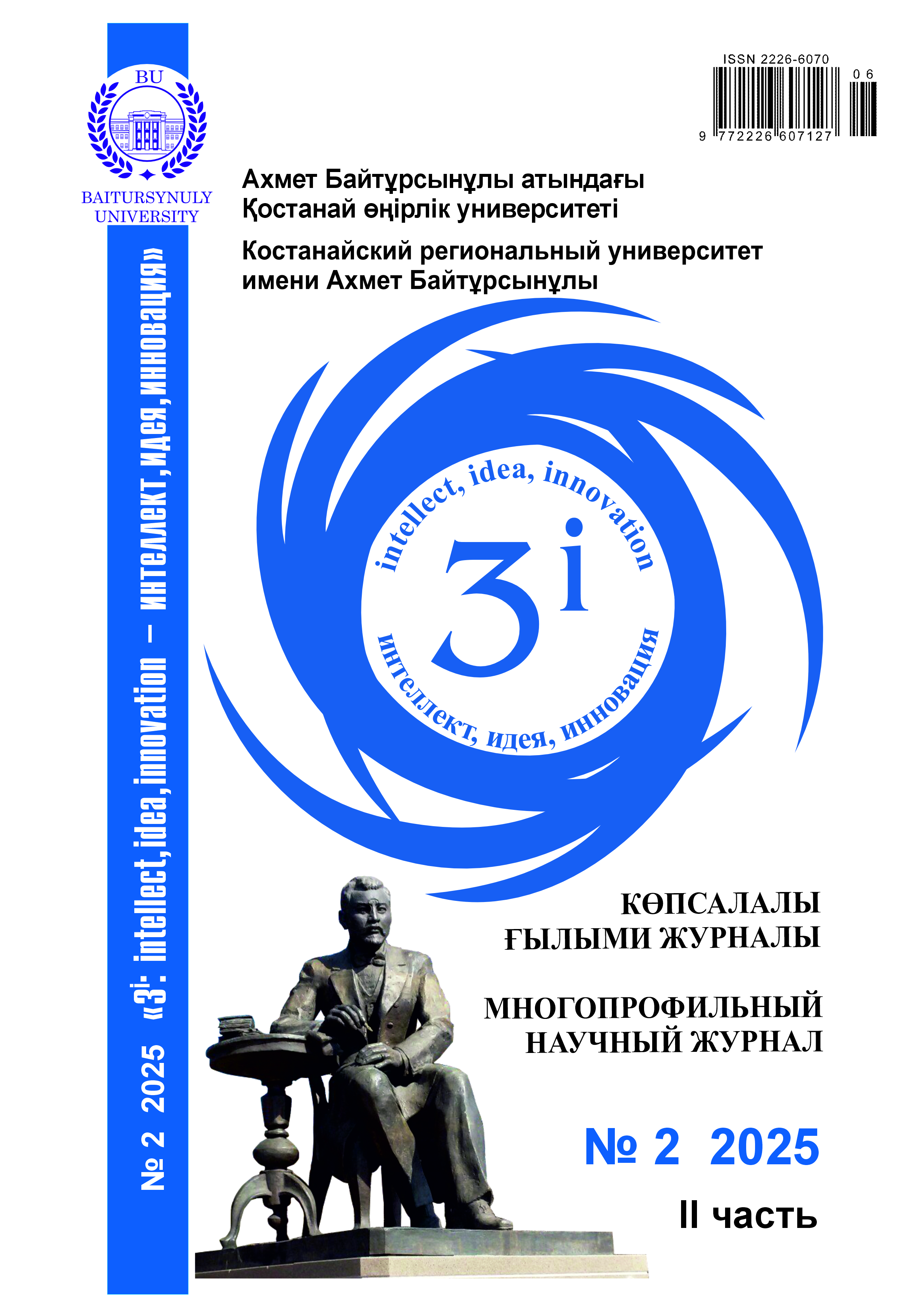КОЛЛАБОРАТИВТІ ЦИФРЛЫҚ ОРТАДА БОЛАШАҚ ПЕДАГОГТЕРДІҢ ЦИФРЛЫ ҚҰЗЫРЕТТІЛІКТЕРІН ҚАЛЫПТАСТЫРУ
DOI:
https://doi.org/10.52269/RWEP252248Кілт сөздер:
коллаборация, консорциум, білім беру сайты, кәсіби құзыреттілік, цифрлық ресурс, онлайн курс.Аңдатпа
Қазіргі жылдам өзгеріп жатқан ақпараттық дәуірде цифрлық технологияларды өз тәжірибесінде жүйелі түрде қолдана алатын, оқу үдерісін ұтымды басқаруды білетін, оқу үдерісін жетілдіру мақсатында үнемі ғылыми зерттеулер жүргізетін, цифрлық технологиялар мен платформаларда жұмыс іздеу шығармашылық ізденістерімен ерекшеленетін мамандарды даярлау бүгінгі күннің өзекті мәселесі. Сондықтан бүгінде болашақ педагогтерді цифрлық технологиялармен қаруландырудың маңызы зор.
Мақаланың мақсаты – коллаборативті цифрлық ортада болашақ педагогтердің құзыреттіліктерін қалыптастырудың тиімді жолдарын және ерекшеліктерін анықтау.
Зерттеуде теориялық және эмпирикалық зерттеу әдістері қолданылды: абстракция, модельдеу, синтез, тестілеу, педагогикалық эксперимент, SWOT талдау және т.б.
Келесі ұғымдар зерттелді: «цифрлық сауаттылық», «цифрлық құзыреттілік», «болашақ педагогтердің цифрлық құзыреттілігі», «ынтымақтасу», «бірлескен цифрлық орта». Цифрлық бірлескен білім беру ортасы білім сапасын басқару процестерін автоматтандыруға және болашақ педагогтердің цифрлық ортада цифрлық оқыту дағдыларын дамытуға мүмкіндік береді.
Болашақ педагогтердің цифрлық құзыреттілігін дамытудың артықшылықтары, педагогтердің Еуропалық цифрлық құзыреттілік шеңберінде болашақ педагогтердің цифрлық дағдылары мен цифрлық құзыреттілігінің құрылымы, кооперация-координация-коммуникация- креативтілік ретіндегі «коллаборация» ұғымының мәні, ұсынылып отырған https://edu-collaboration.kz/ педагогикалық білім беру порталының құрылымы мен ерекшеліктері анықталды, қазақстандық жоғары оқу орындарының консорцумы құрылды.




